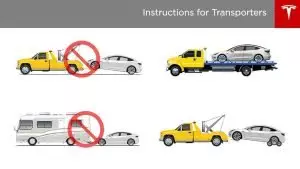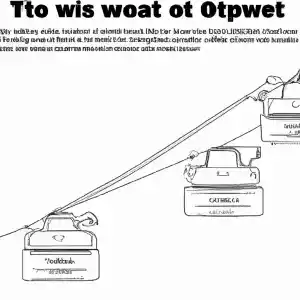In the realm of towing vehicles, one recurring debate revolves around the suitability of short beds versus long beds. Whether you’re a seasoned truck enthusiast or just dipping your toes into the world of towing, it’s important to understand the advantages and limitations of each option. This article aims to explore the factors one should consider when choosing between a short bed or a long bed for towing purposes, providing valuable insights to help you make an informed decision.

Factors to Consider
When it comes to choosing the right truck for towing, there are several factors that you need to consider. These factors will not only impact your towing experience but also affect the overall performance and capabilities of your truck. By carefully evaluating each factor, you can make an informed decision that aligns with your specific needs and preferences. The key factors that you should take into account are trailer length, turning radius, towing capacity, payload capacity, bed space, and driving maneuverability.
Trailer Length
Trailer length is an essential consideration when selecting a truck for towing. The compatibility of your truck’s bed length with the trailer will greatly impact your ability to tow efficiently and safely. Whether you opt for a short bed or a long bed will largely depend on the type and size of trailers you intend to tow.
Short Bed Compatibility
Short bed trucks typically have a bed length of around 5 to 6.5 feet, making them more suitable for smaller trailers. These trucks provide better maneuverability in tight spaces and urban areas due to their reduced length. However, when it comes to towing larger trailers, short beds might face limitations in terms of weight distribution and clearance during sharp turns.
Long Bed Compatibility
Long bed trucks, with a bed length of around 7 to 8 feet, offer greater compatibility with larger trailers. Their extended bed space allows for improved weight distribution, reducing the chances of trailer sway and enhancing stability. Long beds are particularly advantageous when towing longer trailers, providing ample room for secure attachment and minimizing the risk of collisions during turns.
Importance of Overall Length
In addition to considering the bed length, it is crucial to take into account the overall length of the truck and trailer combination. Longer setups can sometimes be challenging to maneuver in tight spaces or crowded areas. Therefore, it is essential to strike a balance between trailer size and overall length to ensure safe and hassle-free towing experiences.
Turning Radius
The turning radius of a truck plays a significant role in its maneuverability, particularly in confined spaces or when navigating through sharp turns. The length of the truck’s bed can impact its ability to negotiate turns smoothly.
Short Bed Maneuverability
Short bed trucks generally offer a shorter turning radius compared to their long bed counterparts. This feature enhances their maneuverability and makes them a favorable choice for situations that demand agility, such as urban driving or maneuvering within small parking lots. Short bed trucks can execute tighter turns, contributing to a more seamless towing experience in tight and congested areas.
Long Bed Maneuverability
Long bed trucks, albeit having a longer wheelbase, can sometimes pose challenges in terms of maneuverability due to their increased length. In situations where space is limited, executing sharp turns or parking might require greater caution and attention. However, the trade-off is that long bed trucks often provide better stability on long-distance hauls, thanks to their extended wheelbase and enhanced weight distribution.
Considerations for Tight Spaces
If you frequently find yourself in situations that require tight turns or navigating through narrow passages, a short bed truck might be the better option for you. However, if you prioritize stability during towing or plan on hauling larger trailers over longer distances, a long bed truck might be more suitable, as long as you are mindful of its maneuverability limitations in tighter spaces.

Towing Capacity
Towing capacity is a crucial factor to consider when selecting a truck for towing. It determines the maximum weight your truck can safely tow without compromising performance or safety.
The Importance of Towing Capacity
Having a thorough understanding of your towing needs is essential to ensure that your truck can handle the weight of the trailer and its contents. Exceeding the towing capacity can put undue stress on your truck’s engine, transmission, and braking system, resulting in accelerated wear and reduced efficiency. Therefore, it is vital to carefully assess the towing capacity of the truck you intend to purchase.
Short Bed Towing Capacity
Short bed trucks generally have slightly lower towing capacities compared to their long bed counterparts. This disparity can be attributed to factors such as weight distribution limitations and the reduced overall length. While short bed trucks may be perfectly capable of towing smaller trailers or lightweight loads, they might face challenges when it comes to hauling larger, heavier trailers.
Long Bed Towing Capacity
Long bed trucks, with their extended length and improved weight distribution, often boast higher towing capacities. The added stability provided by the longer wheelbase allows for more even weight distribution, reducing strain on the truck’s suspension and drivetrain components. This increased towing capacity makes long bed trucks better suited for hauling heavier loads or pulling larger trailers.
Effect of Different Bed Lengths
The bed length of a truck can impact its towing capacity due to the weight distribution considerations and the resulting impact on the overall performance of the vehicle. While short bed trucks may have lower towing capacities, it is vital to evaluate your specific towing needs to determine if the difference in towing capacity is significant for your intended applications.
Payload Capacity
Payload capacity refers to the maximum weight that a truck can carry in its bed and cab. Considering the payload capacity of a truck is crucial for determining its suitability for towing, especially for those who frequently transport heavy loads or have a need for additional cargo space.
The Significance of Payload Capacity
The payload capacity of a truck directly affects its towing performance, as the weight in the bed and cab contributes to the overall weight being towed. Exceeding the payload capacity can result in imbalanced loads, reduced stability, and compromised handling, leading to safety hazards.
Short Bed Payload Capacity
Short bed trucks, with their smaller bed size, generally have slightly lower payload capacities compared to long bed trucks. This limitation is due to the reduced available space for cargo. While a short bed truck may still have ample payload capacity for most everyday hauling needs, it is crucial to consider if it can accommodate the weight of your cargo, accessories, and any passengers while towing.
Long Bed Payload Capacity
Long bed trucks typically offer higher payload capacities due to their larger bed size. The extended length provides more space to carry heavier loads without exceeding the truck’s weight limits. If you often find yourself needing to transport substantial payloads, a long bed truck might be a more suitable option, given its enhanced cargo-carrying capabilities.
Effect on Towing Performance
The payload capacity of a truck directly affects its towing performance. Exceeding the payload capacity can lead to unbalanced loads, jeopardizing the stability and maneuverability of the truck while towing. Therefore, it is crucial to consider your specific hauling needs and ensure that the chosen truck has a payload capacity that can accommodate both the weight of the cargo and any additional equipment or passengers.
Bed Space
The bed space of a truck plays a crucial role in determining its utility and convenience, especially when it comes to towing. The length of the bed can impact the storage capacity and flexibility in securing and organizing cargo.
Short Bed Storage
Short bed trucks often have slightly less bed space compared to long bed trucks. While this might limit the amount of cargo that can be carried in the bed, it can be advantageous for compact storage needs. The reduced bed length can make it easier to access and secure smaller loads, thanks to the shorter distance between the cargo and the tailgate.
Long Bed Storage
Long bed trucks, with their extended bed length, offer more generous storage space compared to short bed trucks. The added length allows for greater flexibility in carrying larger, bulkier items and provides ample room for securing cargo. If you frequently haul larger loads that demand additional space, a long bed truck might provide the storage capacity you require.
Utility and Convenience
The choice between a short bed truck and a long bed truck ultimately depends on your specific towing and hauling needs. If you prioritize easy accessibility, maneuverability, and compact storage, a short bed truck may be the more convenient option for you. On the other hand, if you frequently haul larger items or require additional storage space, a long bed truck’s utility and capacity may better align with your requirements.
Driving Maneuverability
The driving maneuverability of a truck is an essential consideration, as it impacts your overall driving experience, especially during towing. How the truck handles and reacts to different road conditions and challenges should be evaluated to ensure optimal control and safety.
Benefits of Short Bed
Short bed trucks generally offer enhanced maneuverability due to their reduced length. This characteristic makes them easier to navigate through tight spaces, such as narrow city streets or crowded parking lots. Short bed trucks often have smaller turning radii, allowing for sharper turns and more precise maneuvering, which can be particularly advantageous in urban areas or when performing intricate parking maneuvers.
Benefits of Long Bed
Long bed trucks, although sacrificing some level of maneuverability due to their extended length, offer benefits in terms of stability and control. The longer wheelbase provides improved weight distribution, enhancing the truck’s stability during towing. Long bed trucks are often more capable of maintaining a straighter line while towing, reducing the chances of trailer sway and offering a more controlled and comfortable towing experience.
Handling and Controlling the Vehicle
When deciding between a short bed truck and a long bed truck, it is essential to weigh the advantages of maneuverability against the benefits of stability. Consider your typical driving conditions and the level of control you desire while towing. Whether you prioritize precise maneuvering or a more stable towing experience, carefully evaluating your specific needs will assist you in making the right choice.
Short Bed Applications
Short bed trucks are especially suitable for certain towing applications, depending on your specific needs and preferences.
Recreational Towing
If you primarily tow smaller trailers for recreational purposes, such as camping trailers, horse trailers, or travel trailers, a short bed truck can often meet your towing needs. The agility and maneuverability provided by a short bed truck are particularly valuable in recreational settings, where navigating campgrounds or winding trails may require sharper turns or tighter maneuvers.
Urban Driving
For individuals who frequently traverse urban areas or cities with their trailers, a short bed truck’s maneuverability can be highly advantageous. Parking in cramped spaces or maneuvering through busy streets becomes more manageable with a shorter truck length. Short bed trucks are typically better suited for urban driving, where space constraints and complex traffic patterns demand nimble and precise handling.
Everyday Use
Short bed trucks, due to their more compact size, offer practicality beyond towing. If you intend to use your truck for day-to-day activities, such as commuting, running errands, or transporting smaller items, the shorter bed length can provide convenience and ease of use. Short bed trucks are often more suitable for individuals who desire the capabilities of a truck while maintaining a versatile and maneuverable vehicle for everyday tasks.
Long Bed Applications
Long bed trucks are well-suited for specific towing applications that require enhanced cargo capacity and stability.
Commercial Towing
For individuals involved in commercial towing, such as hauling construction materials, large equipment, or multiple vehicles, a long bed truck can provide the necessary cargo space and weight distribution capabilities. Long bed trucks are commonly employed for heavy-duty towing tasks, where stability and payload capacity play critical roles in completing the job efficiently and safely.
Heavy-Duty Hauling
Those engaged in heavy-duty hauling, such as towing horse trailers, livestock trailers, or large utility trailers, often benefit from the extended bed length offered by long bed trucks. The added cargo space allows for easier loading and securing of larger, heavier items. Long bed trucks excel in these applications, supporting the transportation of substantial loads with improved weight distribution and stability.
Off-Roading
If you plan to take your truck and trailer on off-road adventures, a long bed truck can offer added benefits. The extended wheelbase of long bed trucks enhances stability and traction, making them well-suited for traversing rugged terrains. The additional cargo space can also accommodate off-road equipment and gear, further enhancing the versatility and capabilities of the truck for adventurous journeys.
Considerations for Choosing
When making a decision between a short bed truck and a long bed truck, it is crucial to consider several factors to ensure the chosen truck aligns with your specific towing needs.
Type of Towing
The type of towing you plan to undertake should heavily influence your decision. If you primarily tow smaller trailers for recreational purposes or anticipate frequent urban driving, a short bed truck’s maneuverability may provide the advantages you need. Conversely, if you regularly haul heavy loads or require extended cargo space for commercial or off-road purposes, a long bed truck’s added stability and capacity may suit your requirements better.
Individual Preferences
Your personal preferences and priorities should also be taken into account when selecting a truck. Consider your comfort level with handling and maneuvering a larger truck, as well as your preference for cargo space and accessibility. Balancing your individual preferences with the practicalities of towing will ultimately help determine the most suitable choice for you.
Budget Constraints
Financial considerations play an important role when choosing the right truck for towing. Short bed trucks generally come at a lower price point compared to their long bed counterparts due to their smaller size. However, it is essential to weigh the cost savings against your specific needs and intended applications. While short bed trucks may be more budget-friendly upfront, they may not provide the necessary capabilities or storage space for certain towing requirements.
Available Options
Finally, it is crucial to explore the available options within each bed length category. Different manufacturers offer various models and configurations, each with their own unique features and capabilities. Assessing the available options, such as engine choices, towing packages, and additional accessories, allows you to tailor your truck to suit your exact towing needs.
In conclusion, choosing between a short bed truck and a long bed truck for towing involves carefully evaluating various factors, including trailer length, turning radius, towing capacity, payload capacity, bed space, and driving maneuverability. By understanding your specific towing requirements and considering these factors, you can select a truck that aligns with your needs, preferences, and budget constraints. Whether you prioritize maneuverability or cargo capacity, the right choice will ensure a safe, efficient, and enjoyable towing experience.


